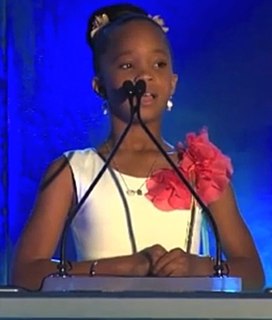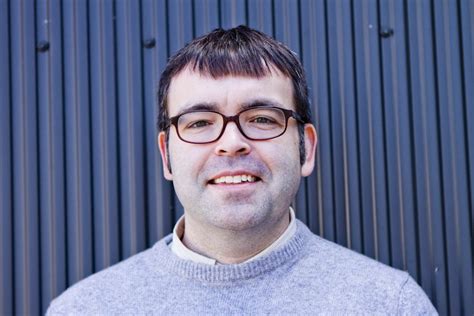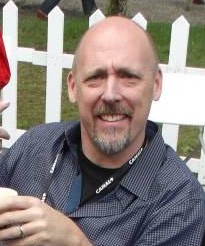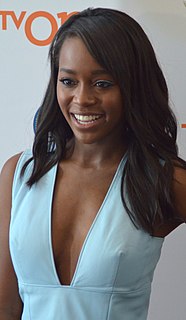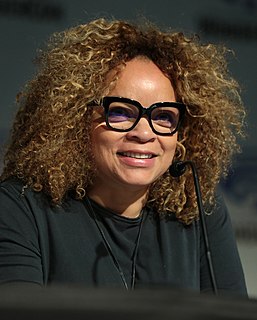A Quote by Quvenzhane Wallis
I envision the script as a story in my mind, memorize the entire thing and have it play out. It helps me figure out where my character needs to go.
Related Quotes
I think the most important thing for an actor is reading the script and trying to figure out if you can play that character well. The last thing on my mind is if the director made good movies previously. It's not my job to know if that director's last movie was any good - it's my job to know if I can play the role.
The great thing about working in comics is that visually, you're the sole voice. You have to figure out the staging, the lighting, the composition, the character emotions, the action. You get a script, but you're trying to work it out in individual panels. It's a terrific exercise in creative thinking and creative problem-solving.
In this day and age, when there are so many people creating work online and writing their own shows, I wouldn't tell another actor, 'If you can do anything else go do that.' I would tell them to figure out the story they want to tell, to figure out what artists inspire you and why, and then figure out a way you can create that for yourself.
One of the things that's funniest about the entertainment industry and comedy is that people go 'Oh, you're great, but I don't know what to do with you.' The great thing about the Internet is that nobody has to figure out what to do with you. You can figure out what to do with you, and you can say, 'I made this thing, and I'm going to put it out, and now if people want to come see me and buy things from me they can.'
I begin with understanding the intentions of the story. That helps me to zero in. Then I gather research for each individual character and analyze the time period with comparisons to the figure and the facial structure. It helps to be comfortable with computers because the massive amount of research is kept electronically and shared with my staff this way. Very little is printed out. I work with an illustrator to come up with the proper silhouettes and details of the clothing from the time period to time period. And on and on.
People talk about grief as if it's kind of an unremittingly awful thing, and it is. It is painful, but it's a very, very interesting sort of thing to go through, and it really helps you out. At the end of the day, it gets you through because you have to reform your relationship, and you have to figure out a way of getting to the future.
